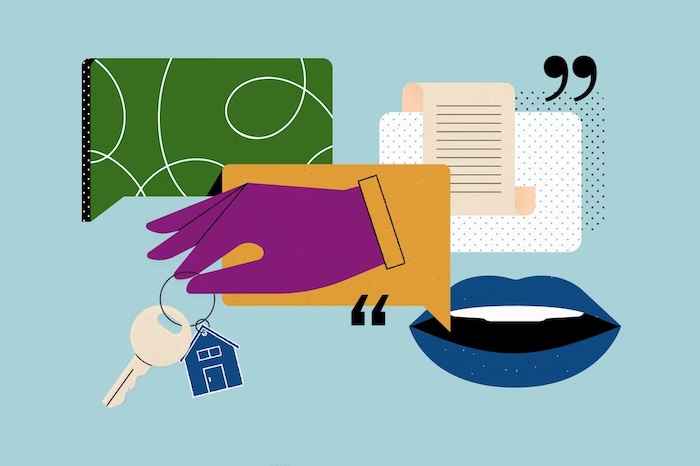— Here’s who can handle your estate plans.

I had a chat with readers about estate planning.
I had no idea how passionate people could get about the fate of a paid-for house.
To catch you up, my husband and I are updating our estate plan. In the process, we learned that our three children did not want to hold onto our mortgage-free home after we’re gone. Our eldest daughter, who will be handling our affairs, persuaded us that the best plan would be to sell it and split the proceeds.
Thousands of readers weighed in on last week’s column, “Our kids don’t want our paid-off house — or our ashes.” It prompted me to hold a live chat on the topic of inheritance. Here’s a recap of the most universal questions, which includes answers to questions I couldn’t get to during the live chat.
It’s a good time to have your own discussion about the things you’ll leave behind. And if you don’t have a will, get one. Now.
Q: How do I find someone trustworthy to do my will?
A: Ask friends and family. And if that doesn’t work, contact the local bar association in your area.
Go to the American Bar Association website (americanbar.org) and search for “Estate planning info & FAQs.”
Q: What do you do if you don’t have children? I’m worried about honesty and reliability.
A: I get this very question from singles all the time. And it’s a hard one, with no right answer, to be honest.
An estate attorney can be the executor of your will, but many I’ve interviewed won’t because it’s a huge responsibility and one that might not be fulfilled for a long time.
For example, what if you set this up with an attorney or firm, and the attorney retires or the firm dissolves? Often, the attorney who retires will pass on cases to a new firm.
You can also hire a financial planner to handle your affairs. But you can run into the same issues with this type of professional.
I suggest you develop deep connections with trustworthy friends and/or extended family. Because frankly, somebody needs to watch the professional. (Just saying.) So maybe the person who handles your estate is your best friend. And if you both are getting older, it could be your best friend’s child. In fact, my husband and I had named my best friend as the personal representative of our estate when our children were younger. We are now changing it to name our daughter, but you get my point.
And it’s worth noting that some folks have such strained relations with their kids that it makes more sense to name someone else to handle their affairs after they are gone.
Q: I volunteer at an animal shelter, which has made it clear I need to make plans for my pets. What is the best way to ensure good care for my two cats and my horse?
A: You can provide for a pet upon your death. When billionaire and convicted tax evader Leona Helmsley died in 2007, she famously left her Maltese a trust fund valued at $12 million. A judge later reduced it to $2 million.
You can’t leave your pet cash directly because animals are considered property, according to Nolo.com, and “one piece of property cannot own another piece of property.”
But you can set up a pet trust that will allow you to set aside money and name a trustee to care for your animals. The American Society for the Prevention of Cruelty to Animals (aspca.org) has an explainer on what to consider when setting up the trust. On the website, search for “Pet trust primer.”
Another option is finding a person or an organization willing to care for your pet. If you have the resources, you can leave money for care and feeding.
Q: We just moved to a retirement community, but my husband wants to keep our paid-off house so our kids can inherit it with a lower tax burden. I think it’s best to sell now. You?< A: I would ask the children and an estate attorney. It’s true that the children would get a stepped-up basis, but you might want to sell and hold on to the money in case you need it for long-term-care expenses. Also, keeping the home means maintaining it. That could involve hiring a property management company and renting it out if your children don’t want the responsibility.
By the way, let me explain stepped-up basis tax provision, which involves capital gains. When you die and your heir or heirs inherit your home, they get it at its current market value or the stepped-up basis. This means your heirs can escape paying capital gains on the property.
Q: How much info should we share with an adult child with a few bad money habits? Our adult daughter has moved home to deal with some health issues and to try to get her career launched. She has said it would be helpful to “understand Mom and Dad’s financial situation” to know what kinds of assistance she can get from us. We want to help her, of course, but she has also demonstrated a willingness to treat us like an ATM. This is not a question of informing her so she can manage our finances after we die. (Her sister is going to get that info.)
A: Follow your instincts. I suspect she wants the information for selfish reasons. She does not need to know your business, especially since you have designated the other daughter to handle your affairs.
Most importantly, the daughter in question does not need to know because she hasn’t demonstrated a sufficient amount of financial responsibility.
Complete Article ↪HERE↩!
